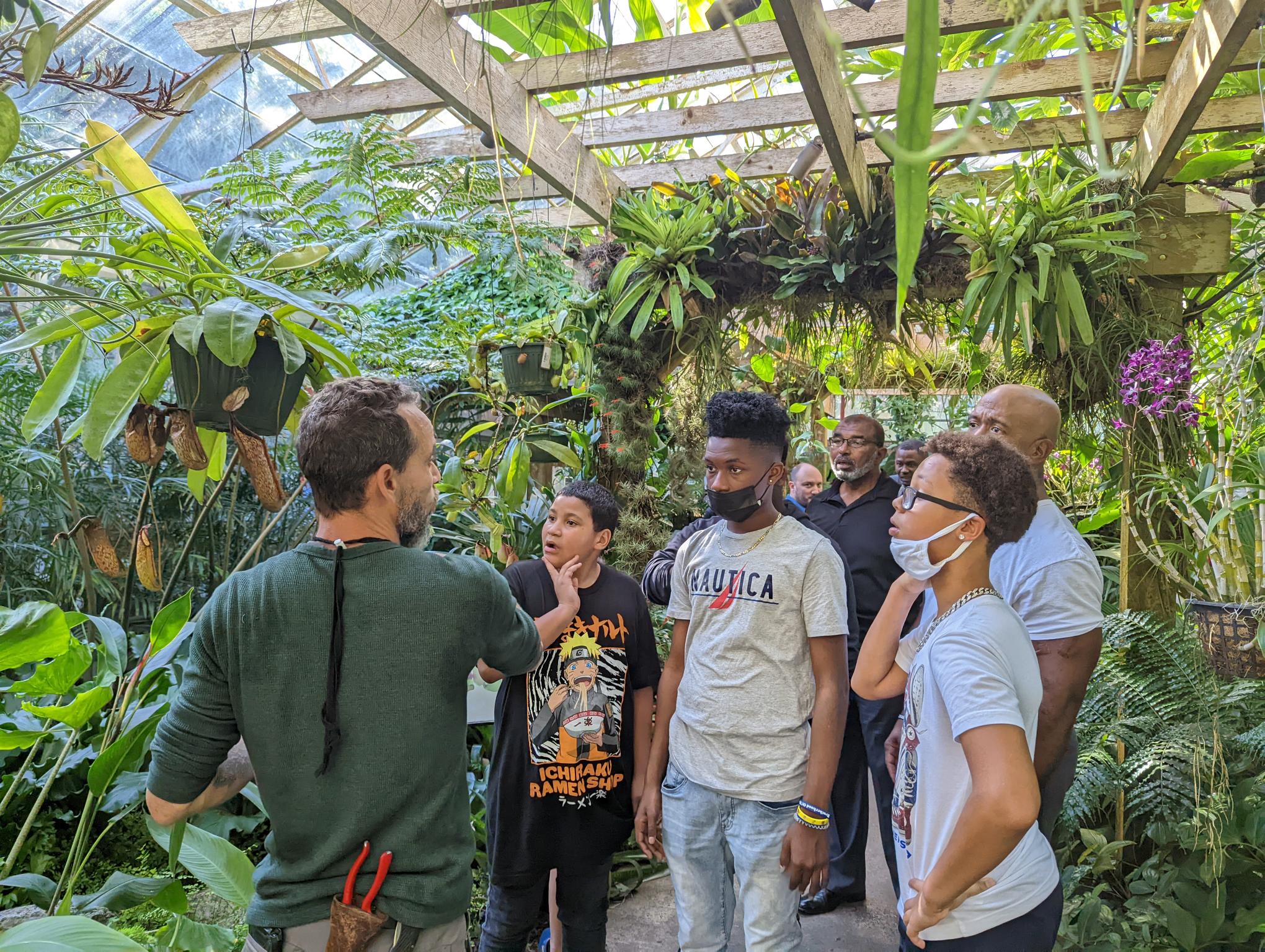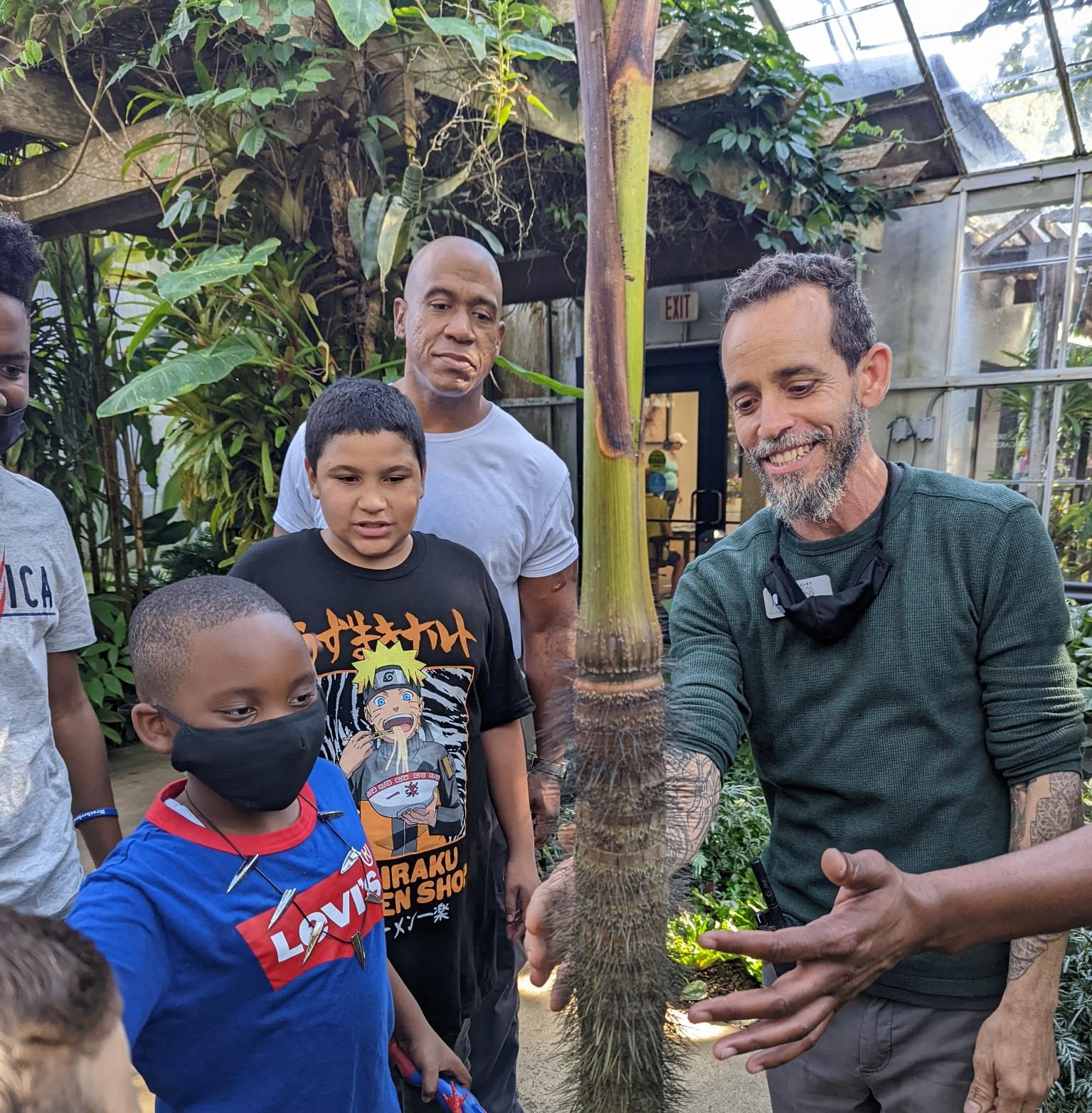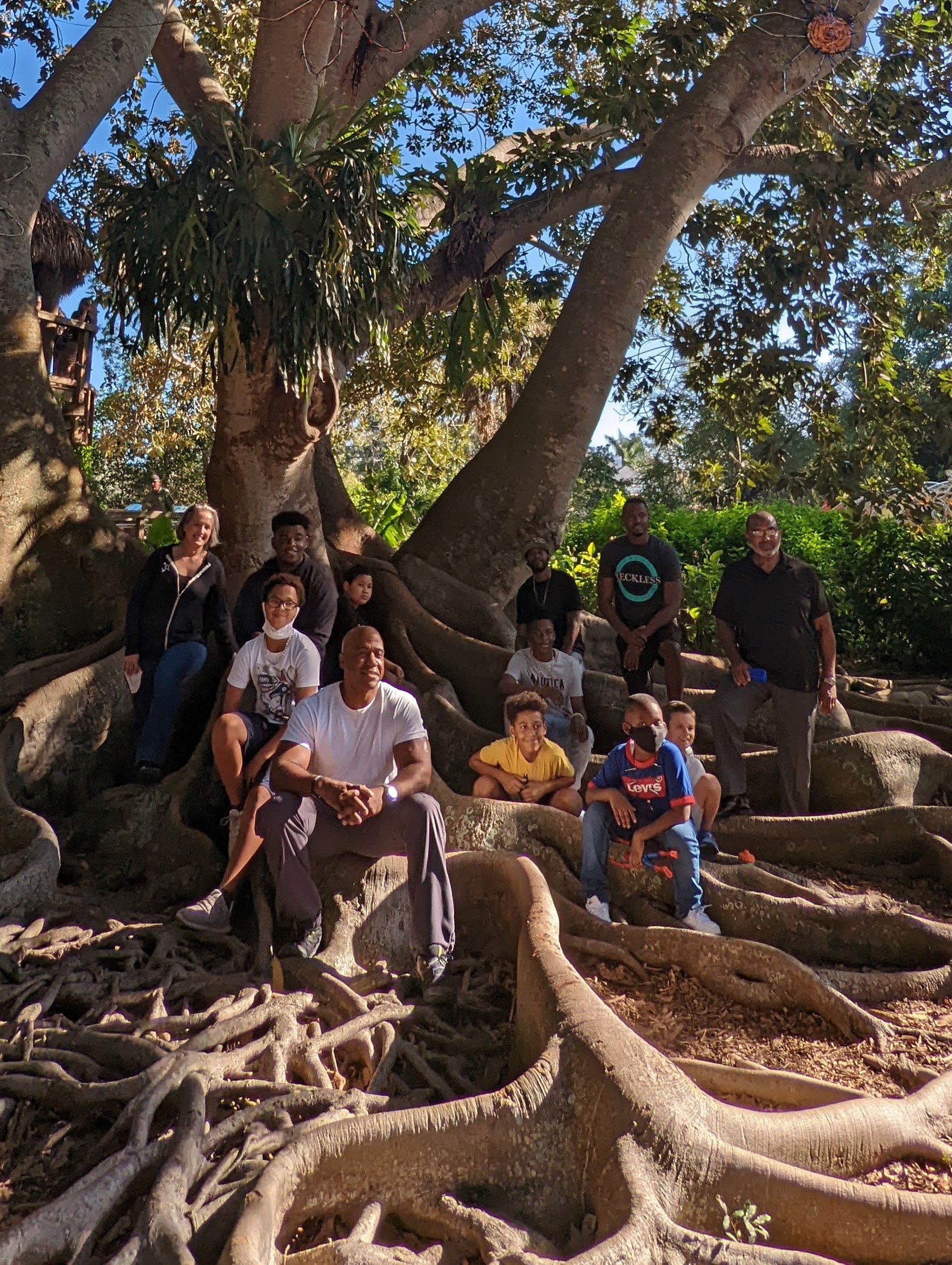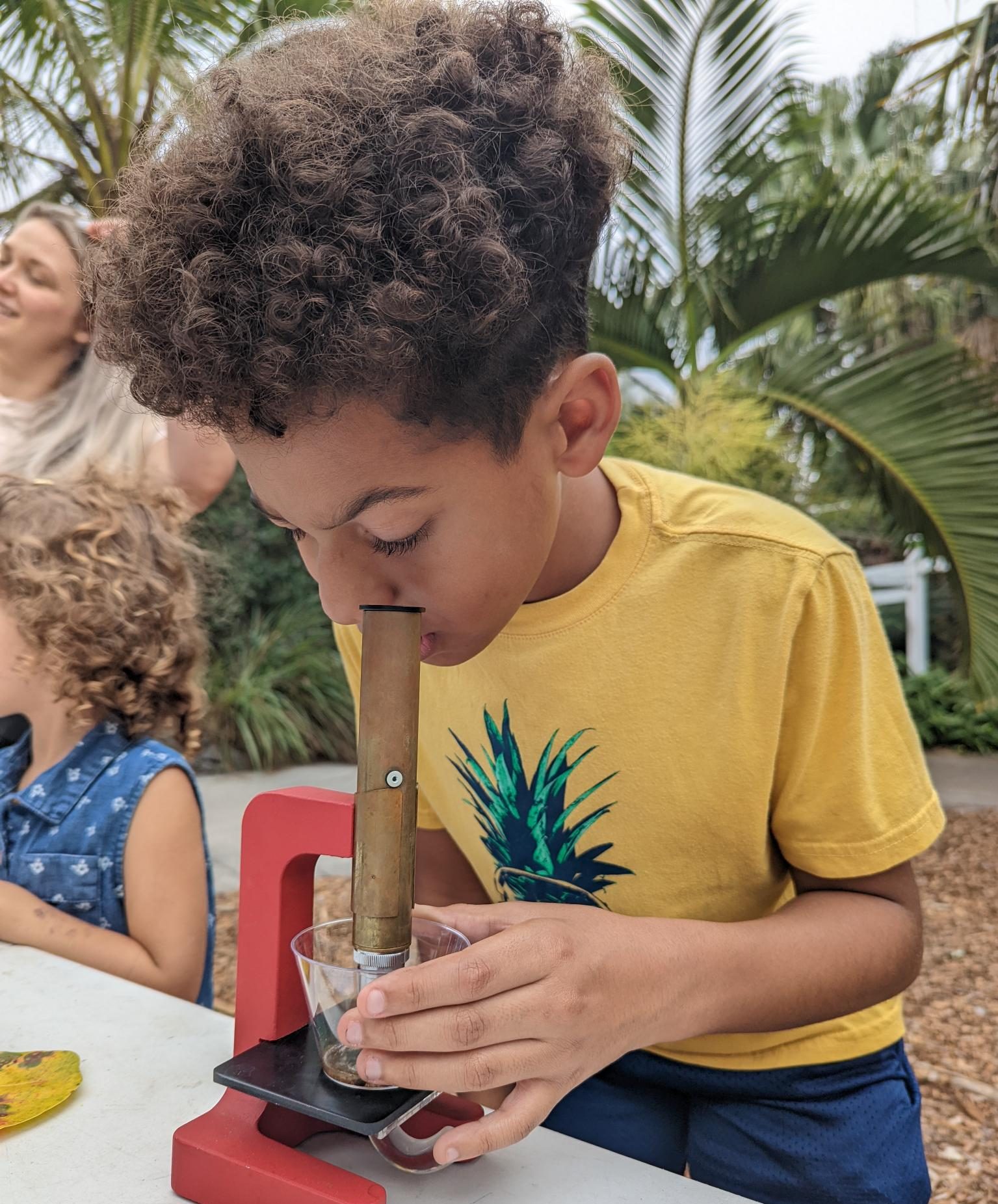Making Our Garden Everyone’s Garden
Approaching its 50th anniversary, Marie Selby Botanical Gardens in Sarasota, Florida, is known for its botanical research and plant collections. Selby Gardens’ Downtown Sarasota campus is the only botanical garden in the world dedicated to the display and study of epiphytic plants, such as orchids, bromeliads, gesneriads, and ferns. Its Historic Spanish Point campus 10 miles south is one of the largest preserves in Florida showcasing native plants and active archaeology that is open to and interpreted for the public. Between the two sites, nearly 300,000 people visit annually.
Yet, the institution realized several years ago that not everyone in the region saw Selby Gardens as a place they might visit, let alone come to understand the significance of its research. In fact, some Sarasota residents who have lived close to the Gardens the longest have never seen this community treasure up close.
In 2019, the Gardens’ Board of Trustees created a Diversity and Inclusion Task Force to ensure that diversity and inclusive thinking would be front and center in everything the organization does. From employment and volunteering to exhibitions and membership, Selby Gardens has prioritized creating opportunities to be inclusive and open to all who wish to be there. “The ultimate goal is to ensure that all in our community see Selby Gardens as a place where they are welcome,” said President & CEO Jennifer O. Rominiecki.
For Selby Gardens’ Botany and Horticulture teams, one strategy to meet this goal is creating partnerships that attract underserved populations to careers in their disciplines and equip them for entry-level positions. Meanwhile, the Education staff is working to increase diversity among students and visitors and to provide instruction that resonates with people from various backgrounds. Working together, these teams have piloted exciting new opportunities for diverse groups to see the work of a public botanical garden up close—and see themselves potentially doing that work.

The internal collaboration builds on two early, foundation-funded programs designed to increase diversity in Selby Gardens’ visitorship. One works through local schools to invite underserved youth and their families to several family-friendly events at the Gardens (think July 4th fireworks, a holiday light show). A second program partners with local youth-serving organizations to offer free, renewable memberships to families who might not otherwise visit Selby Gardens.
The relationships that have developed with those organizations—tended by Selby Gardens’ new vice president for diversity and inclusion—are fertile ground for offshoots that can go much deeper than a few fun visits a year. “We call the free family membership program ‘My Garden,’ because we want everyone in our community to think of Selby Gardens as their garden,” says VP Walter Gilbert. “But we know that a visit to the Gardens may barely scratch the surface of all that goes on here.”
So, teaming with Vice President for Botany Bruce Holst and Director of Environmental Education Anastasia Sallen, Gilbert is expanding My Garden to engage different groups more deeply with the Gardens’ operations and expertise. While still nascent, this outreach is providing community members and Selby Gardens staff alike with uniquely rewarding experiences.
One example is the Brotherhood of Men Mentor Group, a nonprofit that fosters life skills and personal development in young, mostly Black males. Through My Garden, the group received a private tour with behind-the-scenes looks at Selby Gardens’ herbarium, spirit collection, DNA lab, and research greenhouses. Staff highlighted the range of STEM careers involved in each area the boys saw.
Next, staff demonstrated how their work can go beyond the Gardens proper, even right into the boys’ own neighborhoods. The students were invited to participate in a “BioBlitz” at Dr. Martin Luther King Jr. Memorial Park, a city park in Sarasota’s historic Newtown neighborhood. BioBlitzes are field excursions that contribute to the Sarasota-Manatee EcoFlora Project, which is managed by Selby Gardens. The EcoFlora Project—one of five around the country, built on the flagship project pioneered by the New York Botanical Garden—engages citizen scientists to observe, collect, and compile information on plants within their own community. The data can then be used to inform natural resource management and conservation.
“Selby Gardens has shown the boys living in the North Sarasota area, known as Newtown, a garden paradise they had no idea was right down the street from them,” said Dr. Dwight Fitch of the Brotherhood of Men. “Without the efforts and outreach of Selby Gardens, some of these young men may have never known about the history, the beauty, the legacy right in their community, or learned that they too can be a part of it.”

Selby Gardens already offers a variety of educational outreach programs, including field trips, virtual programs, and teacher guides for grades K – 12. Its research scientists also offer internship opportunities for students pursuing studies and careers in botany and horticulture. With the expanding My Garden program, it is adding a bridge between the two. While the effort is still young—more opportunistic experimentation than formalized program as of yet—Selby Gardens believes it can inspire and possibly help shape the next generation of plant conservationists.
-

Brotherhood of Men students and mentors stop for a photo with Selby Gardens’ iconic Morton Bay Fig tree. Photo courtesy of Marie Selby Botanical Gardens. -

Youth get a hands-on introduction to plant science during a tour of Selby Gardens. Photo courtesy of Marie Selby Botanical Gardens. -

The Brotherhood of Men participates in a BioBlitz for the Sarasota-Manatee EcoFlora Project. Photo courtesy of Marie Selby Botanical Gardens.